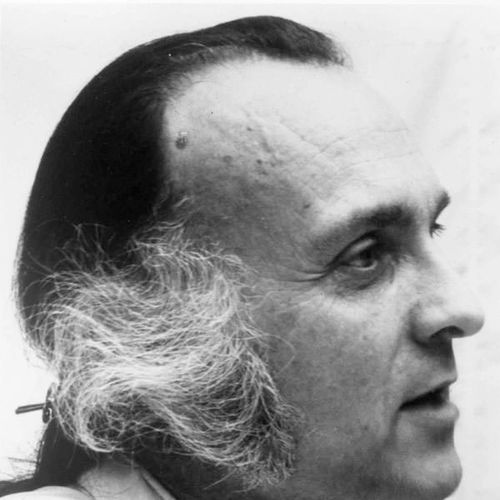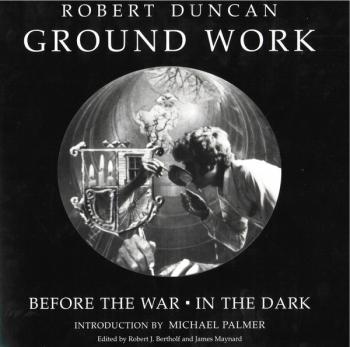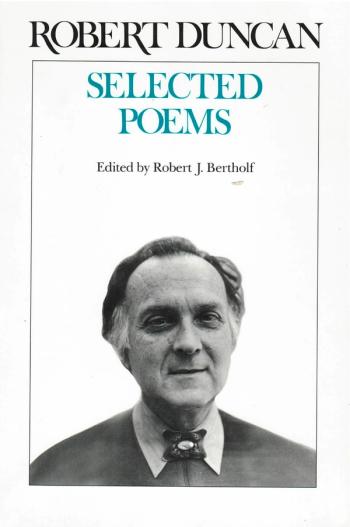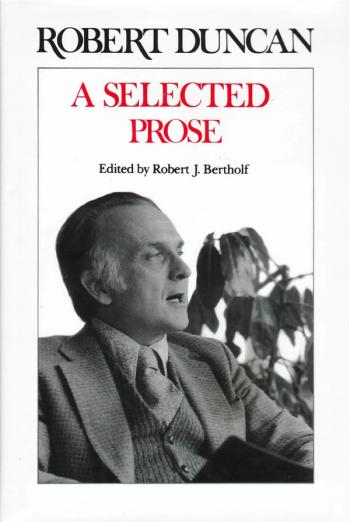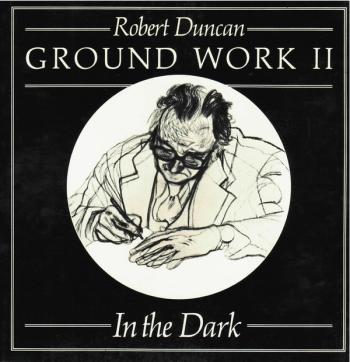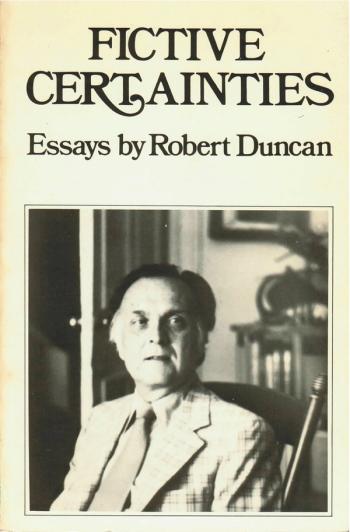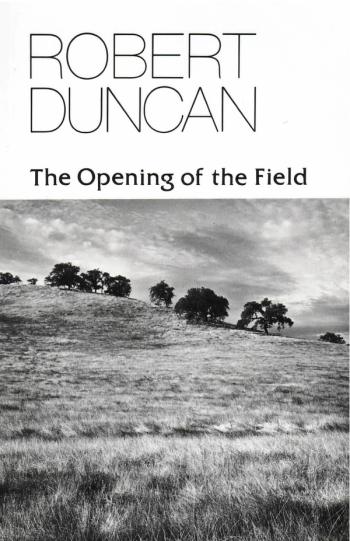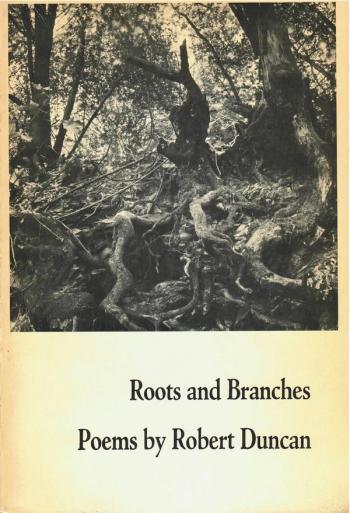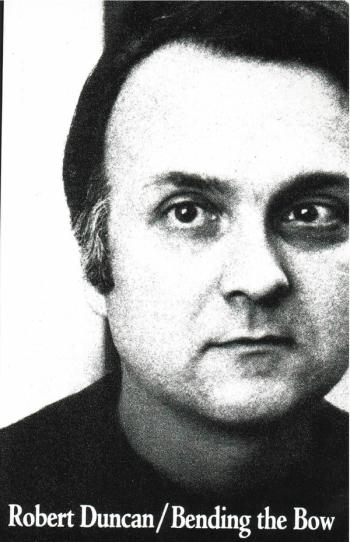Robert Duncan
Robert Duncan (1919–1988) was born in Oakland, California. He was drafted into the Army in 1941, but received a psychiatric discharge after declaring his homosexuality. Duncan was an advocate of gay civil rights, and was a bohemian and part of the San Francisco Renaissance and Beat scene. In 1951 Duncan met the artist Jess Collins and began a collaboration and partnership that lasted 37 years until Duncan’s death. In the 1960s, Duncan wrote a series of books––The Opening of the Field (1960), Roots and Branches (1964), and Bending the Bow (1968)––considered some of his strongest work. After the publication of Bending the Bow, Duncan announced he would not publish a major collection for another fifteen years. During this hiatus he hoped to produce process-oriented poems instead of the “overcomposed” poems he wrote when he thought in terms of writing a book. He reemerged from his silence with Ground Work I: Before the War (1984), which won the National Poetry Award. Ground Work II: In the Dark was published in February of 1988, the month of his death. Both were reissued together into a single volume with an Introduction by Michael Palmer in 2006.
